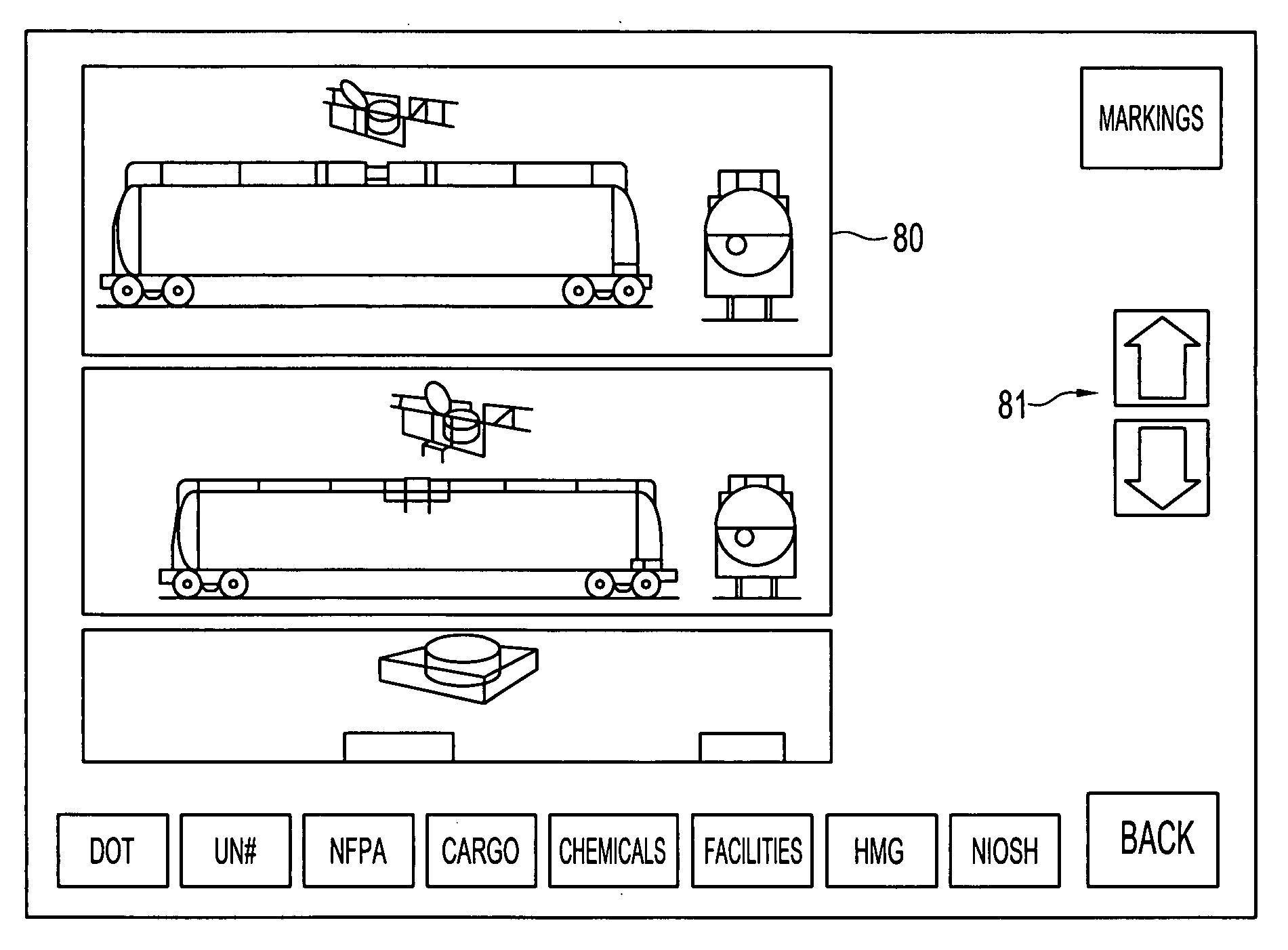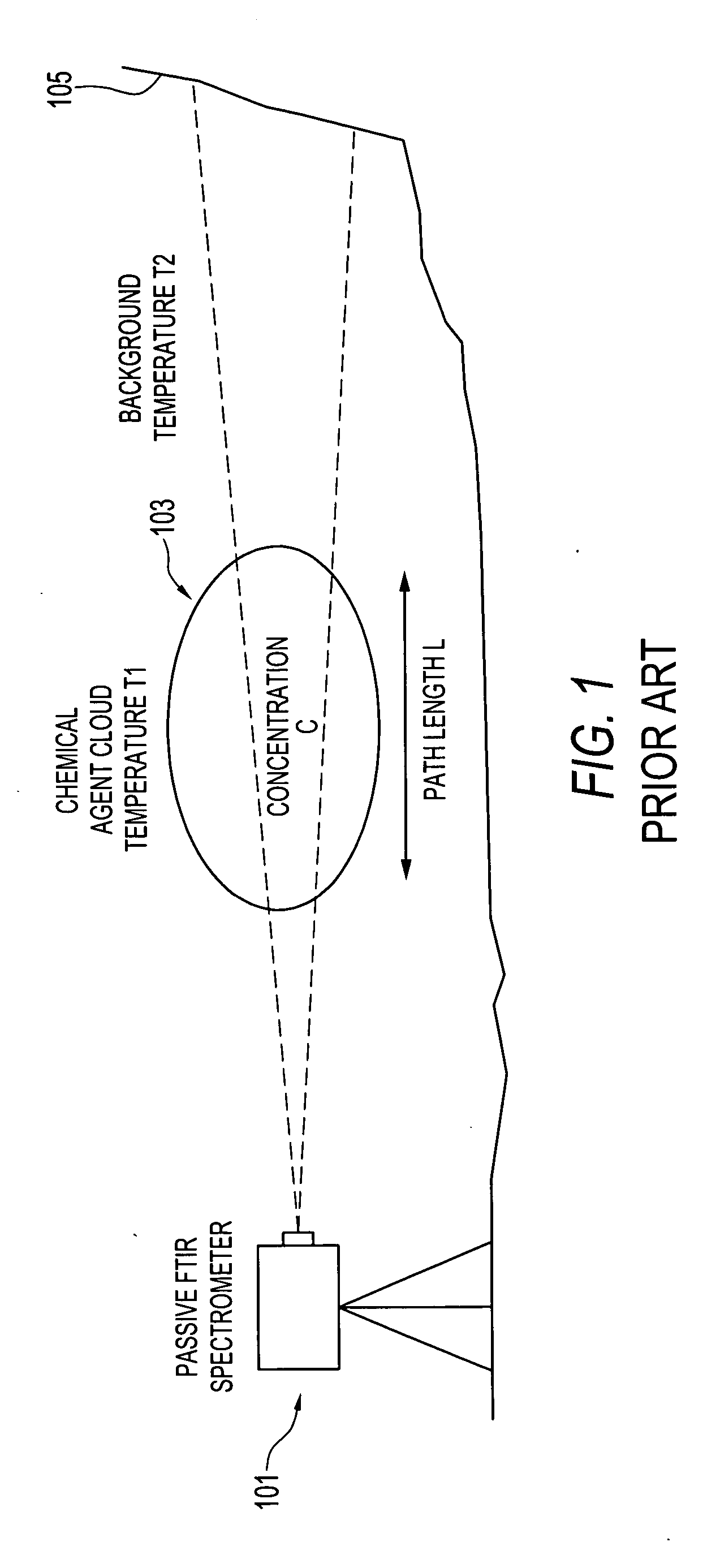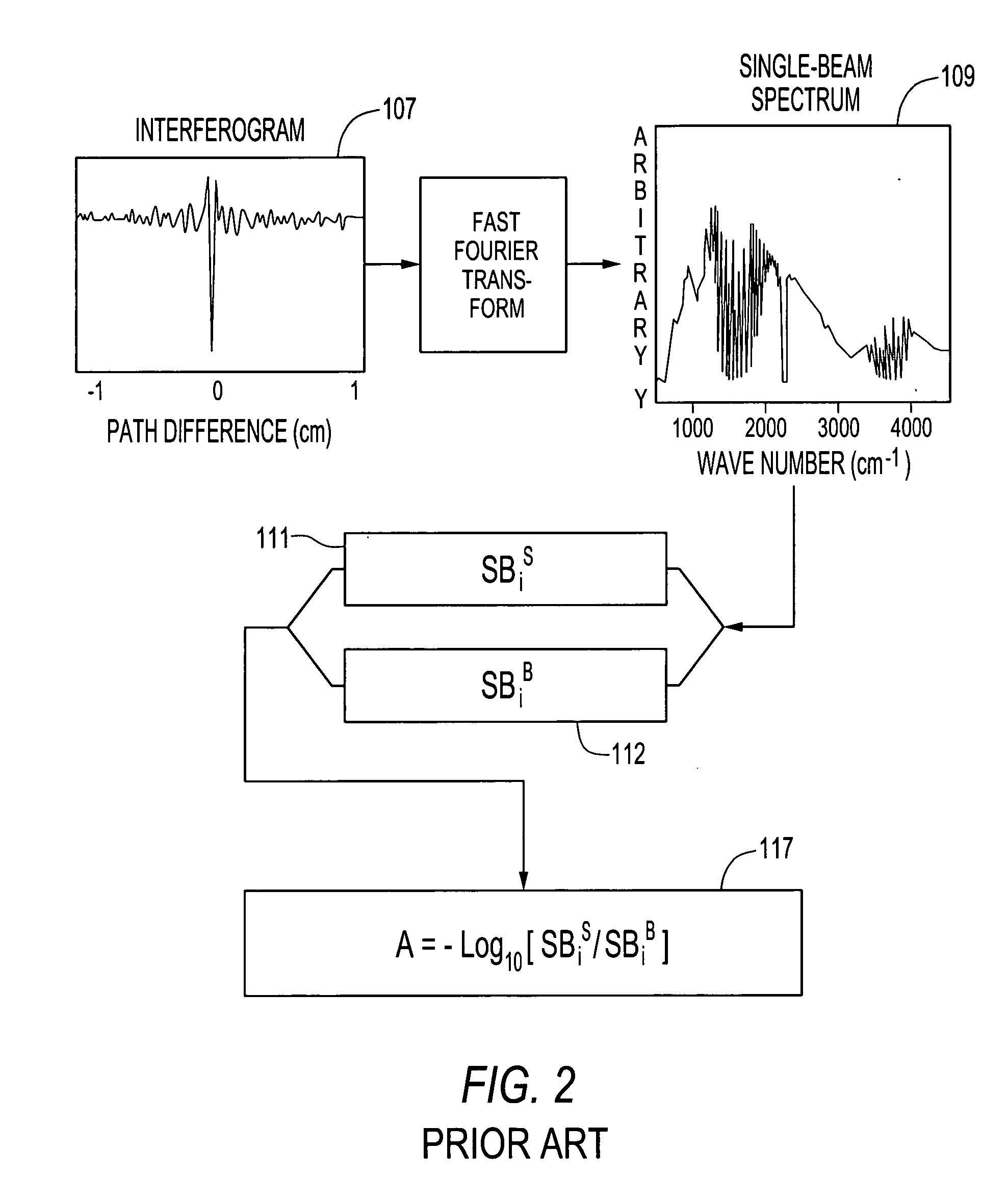Processing system for remote chemical identification
a processing system and chemical identification technology, applied in the field of remote chemical identification, can solve the problem of more complex approaches to estimation of desired parameters overscore (x)
- Summary
- Abstract
- Description
- Claims
- Application Information
AI Technical Summary
Benefits of technology
Problems solved by technology
Method used
Image
Examples
Embodiment Construction
[0066] 1. Non-Spectral Identification of Compounds
[0067] As mentioned above, the present invention relates not only to novel equipment and methods for processing spectral data, it also relates novel methods of identifying chemical compounds based upon "non-spectral" characteristics such as the location of a chemical release or conditions (e.g. colors, smells, and the like) observed at the site of the chemical release.
[0068] To carry out both the spectral and non-spectral identification methods of the present invention, the invention employs a unique combination of hardware to form a system for remotely identifying compounds present in a chemical release. FIG. 4 is a block diagram illustrating the hardware used in the remote identification system of the present invention. Generally speaking, remote chemical identification system 1 will include a spectrometer 3, a location identifier 7, a range finder 5, a user interface 10, a computer processor 4, a weather station 12, a video camera...
PUM
| Property | Measurement | Unit |
|---|---|---|
| density | aaaaa | aaaaa |
| vapor density | aaaaa | aaaaa |
| radius | aaaaa | aaaaa |
Abstract
Description
Claims
Application Information
 Login to View More
Login to View More - R&D
- Intellectual Property
- Life Sciences
- Materials
- Tech Scout
- Unparalleled Data Quality
- Higher Quality Content
- 60% Fewer Hallucinations
Browse by: Latest US Patents, China's latest patents, Technical Efficacy Thesaurus, Application Domain, Technology Topic, Popular Technical Reports.
© 2025 PatSnap. All rights reserved.Legal|Privacy policy|Modern Slavery Act Transparency Statement|Sitemap|About US| Contact US: help@patsnap.com



